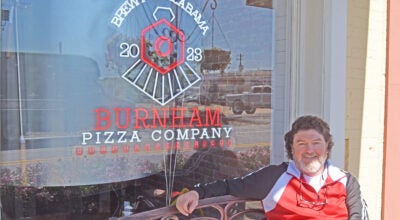PCI in burial battle
Published 11:04 am Wednesday, August 15, 2012
By Blake Bell
news reporter
The Poarch Band of Creek Indians is under fire again this week — this time from members of another Creek tribe who say the PCI-owned casino project slated for Wetumpka desecrates a sacred burial ground.
The Muscogee Nation of Creeks, based in Oklahoma, claim the land where PCI is planning to build its second Wind Creek Casino and Hotel is sacred to their people, which they say were forced from the land in the 1830s, and are threatening legal action unless Poarch officials halt plans for the facility.
According to attorney Brendan Ludwick, who is representing the Muscogee tribe, Hickory Ground, as they know the site, was the last capital of the National Council of the Muscogee (Creek) Nation and includes a ceremonial ground, a tribal burial ground and individual graves.
In a statement released Monday, Ludwick said his clients are poised to fight the continuing development of the Wind Creek project.
“The desecration of a tribal grave, burial or ceremonial place is a human rights violation,” Ludwick said.
PCI Governmental Relations Advisor and tribal council Treasurer Robert McGhee said his band has made every effort to preserve the remains in a fashion consistent with their culture and traditions.
“We have been working with them on and off for six years,” McGhee said. “We value our heritage and respect our ancestors. We have taken great care to honor history and preserve the past while ensuring the future for our Tribe.”
PCI officials announced last month that they would expand their Wetumpka facilities, which currently include a parking garage and small gambling hall. The new facility will include a full-scale casino and hotel three stories taller than the original 17-story Wind Creek in Atmore. The $246 million dollar project is slated to include a 90,000 square foot facility with 285 rooms, more than 2,500 electronic gaming machines, a resort pool and entertainment rooms.
While Wetumpka officials have expressed excitement over the new casino, Muscogee tribal members have described the project as a desecration.
McGhee said those ideas are misguided.
“It is unfortunate that neither the issue nor our response to it was portrayed accurately, but we understand that these centuries-old wounds are deep and the hurt that resulted from tribes being forcibly removed from the Southeast still remains,” McGhee said.
Muscogee Principal Chief George Tiger said he does not believe PCI officials are sympathetic to that hurt.
“The Muscogee (Creek) Nation is committed to protecting the burial and ceremonial grounds of our ancestors,” Tiger said. “We have attempted to convey to the Poarch Band why it is wrong to disturb the peace of our ancestors and burial grounds. However, the Poarch Band does not seem to share our cultural values and respect our traditional ways.”
Ludwick said the Poarch Band promised to preserve the Hickory Ground for the benefit of all Creek Indians, but have instead exhumed Muscogee human remains and ceremonial objects to build the Creek casino in Wetumpka, with assistance from researchers at Auburn University.
Mekko George Thompson, who has served as a traditional Chief of the Oce Vpofa Muscogee Creeks in Oklahoma for 42 years, said, “Our ancestors and their burial objects, and our cultural items need to be returned where they were taken from, and the whole place needs to go back to nature.”
McGhee said what has been exhumed over the six-year course of the project, both remains and artifacts, was stored with the utmost care before being laid to rest again on a designated area of the property for the purpose of keeping them on the grounds.
“We kept the remains on the property in a sealed enclosure with security.” he said. “We did it (buried the remains) by a ceremonial burial that put them back into Hickory Ground.”
McGhee said PCI has been working to meet the concerns of the Muscogee tribe since the project began, and will continue to do so.





